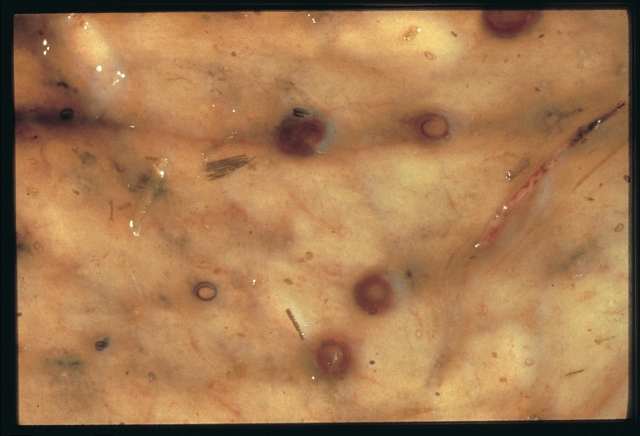
Could You Be Risking Your Horses Health By Worming Incorrectly?
One in three horse owners are worming incorrectly, which may put their horses at serious risk from encysted small redworm damage, according to the results of the latest National Equine Health Survey (NEHS).
All horses should be wormed for encysted small redworm during November/December, even if they have a negative faecal worm egg count.1,2 Nonetheless this year’s National Equine Health Survey showed that 29% of people who thought they had treated for this fatal parasite had unfortunately used a product not indicated to treat for encysted small redworm.3
Small redworm are the most common worms found in UK horses and, in their encysted stage, they are potentially fatal. The problem is that they don’t show up in faecal worm egg counts and they may not cause any obvious symptoms so owners often don’t know their horse has got them.
There are only two active ingredients licensed to treat encysted small redworm: a single dose of moxidectin or a five-day course of fenbendazole. Resistance to fenbendazole is now widespread in the UK so a resistance test is recommended before using it.2
The survey showed that 64% of those who specified how they treated for encysted small redworm had correctly used moxidectin either as solo therapy or in combination with praziquantel (compared with 71% in 2014). 7% had used fenbendazole (10% in 2014). However, of the remainder, 22.5% had used ivermectin (18% in 2014), and 6.3% had used products licensed for tapeworm treatment.
Wendy Talbot, National Equine Veterinary Manager at Zoetis said: “Encysted small redworm are potentially the most harmful parasites to affect horses in the UK yet the survey results show consistent confusion over the correct product to use to minimise risk. It is imperative for owners to discuss their worm control plan with their vet or SQP and use the right product at the right time to safeguard their horses’ health.”
Tips for year-round worm control in adult horses
· Strategic treatments for all horses: Encysted small redworm – November/December (can be combined with a treatment for bots)
· Targeted treatments: Every two-three months throughout the grazing season carry out faecal worm egg counts and then treat for strongyles as required
· Once or twice per year: Administer a tapeworm treatment or consult your vet about testing
For further information, visit www.wormingyourhorse.info. You can also download Stable Mate, the horse health management app from Zoetis. It is available from the iPhone app store and Google Play Store: text Stable Mate to 80800 to download. (Standard network charges apply. By responding to this text you are consenting to your data being held either within or outside the EEA and processed by or on behalf of Zoetis to administer and manage any matters relating to Zoetis’s future activities or initiatives. For our full privacy policy visit www.zoetis.co.uk).
Further information is available from: Zoetis UK Ltd.,?Walton Oaks, Dorking Road, Walton-on- the-Hill, Tadworth, Surrey KT20 7NS Customer Support: 0845 3008034, www.zoetis.co.uk.
Use medicines responsibly: www.noah.co.uk/ responsible/
References
1. Nielsen (2012) Veterinary Paristology. 185. 32-44
2. Matthews, JB (2008) Equine Vet. Educ. 552-560
3. The National Equine Health Survey, conducted by the Blue Cross and supported by Zoetis, was completed by 4951 horse owners in May 2015, with records returned for 14,952 horses. The survey contained questions on general horse health, care and management and was validated by Professor Josh Slater of the Royal Veterinary College.
More from Zoetis
- 93% of horse owners would vaccinate for EHV if their vet recommended it
- Zoetis calls vets to help test groundbreaking equine health-related quality of life (HRQL) assessment tool
- Vets encouraged to engage with their farmers on the importance of orf vaccination
- Zoetis Hosts Free Webinar to Share Latest Knowledge of Lungworm
- Vets Urge Action as Dog Arthritis Misconceptions Persist

 10 years ago
10 years ago  1501 views
1501 views
